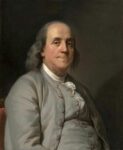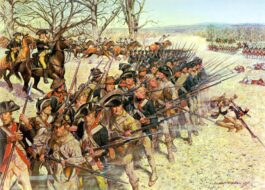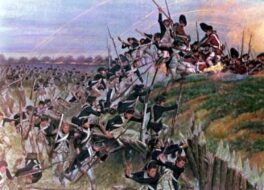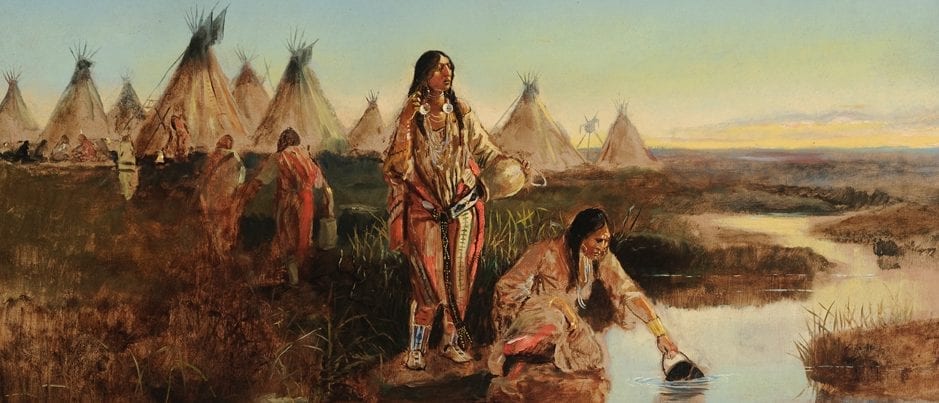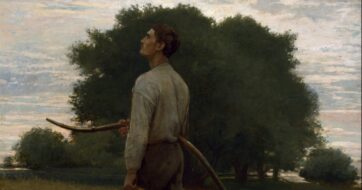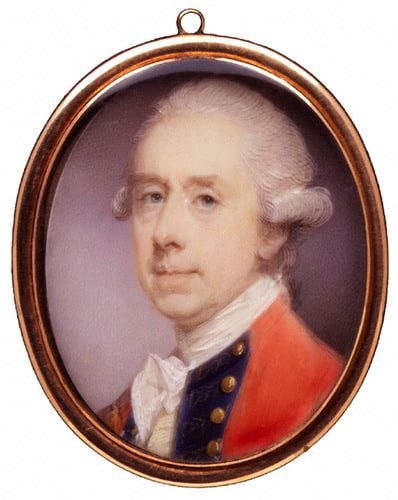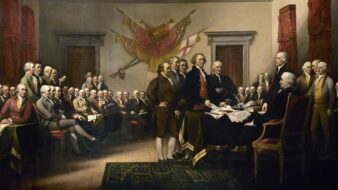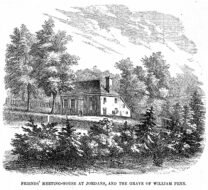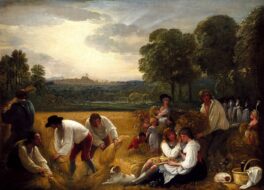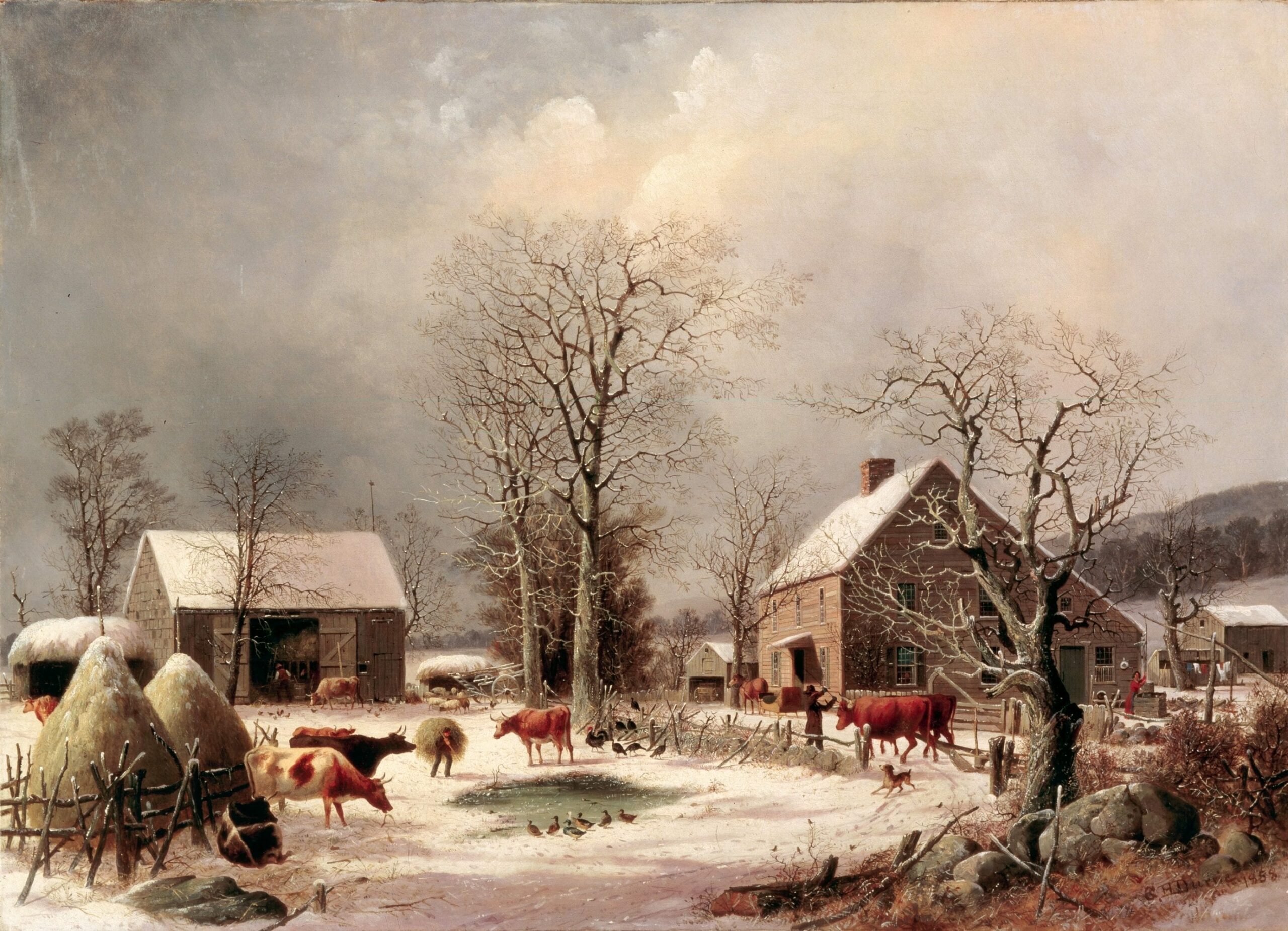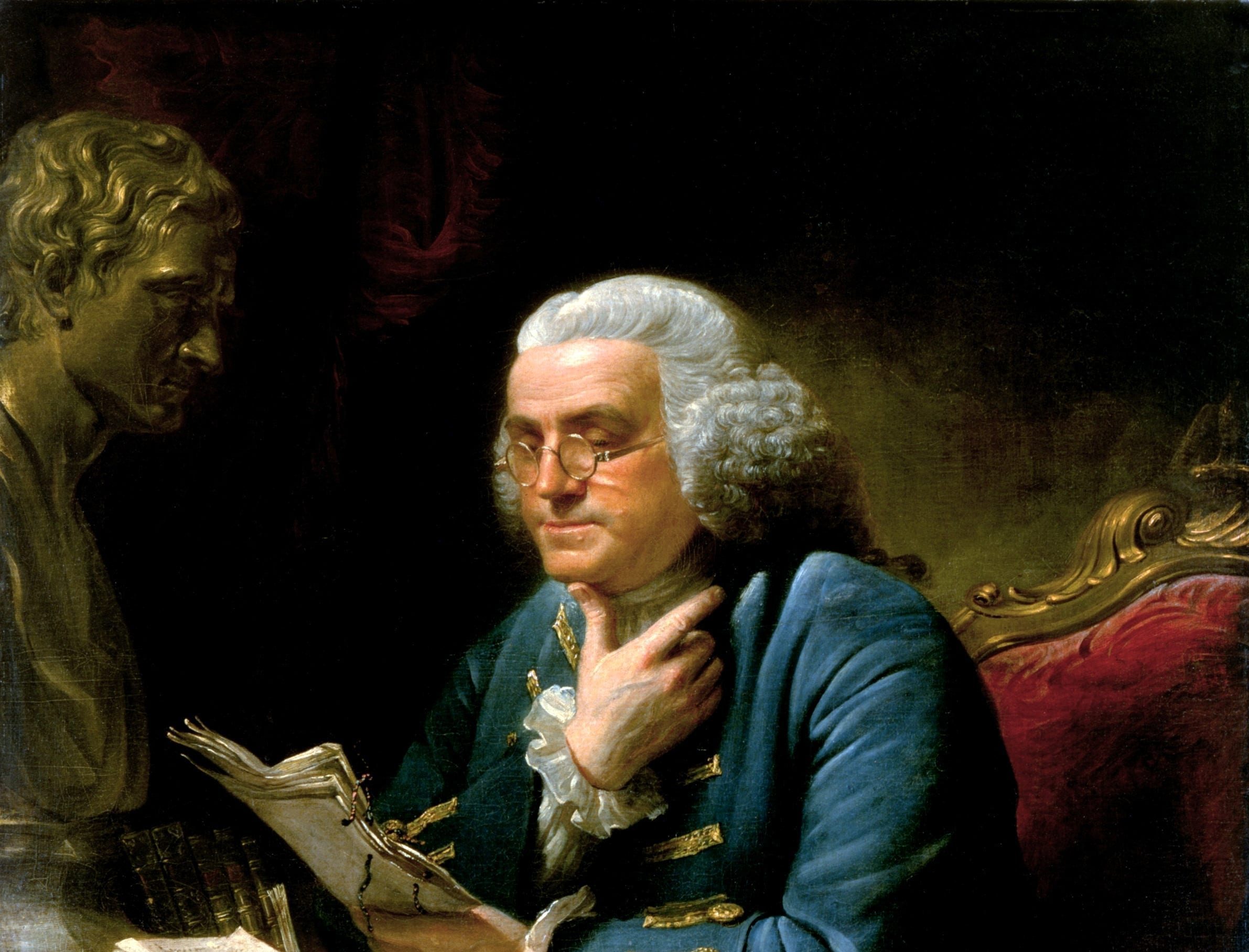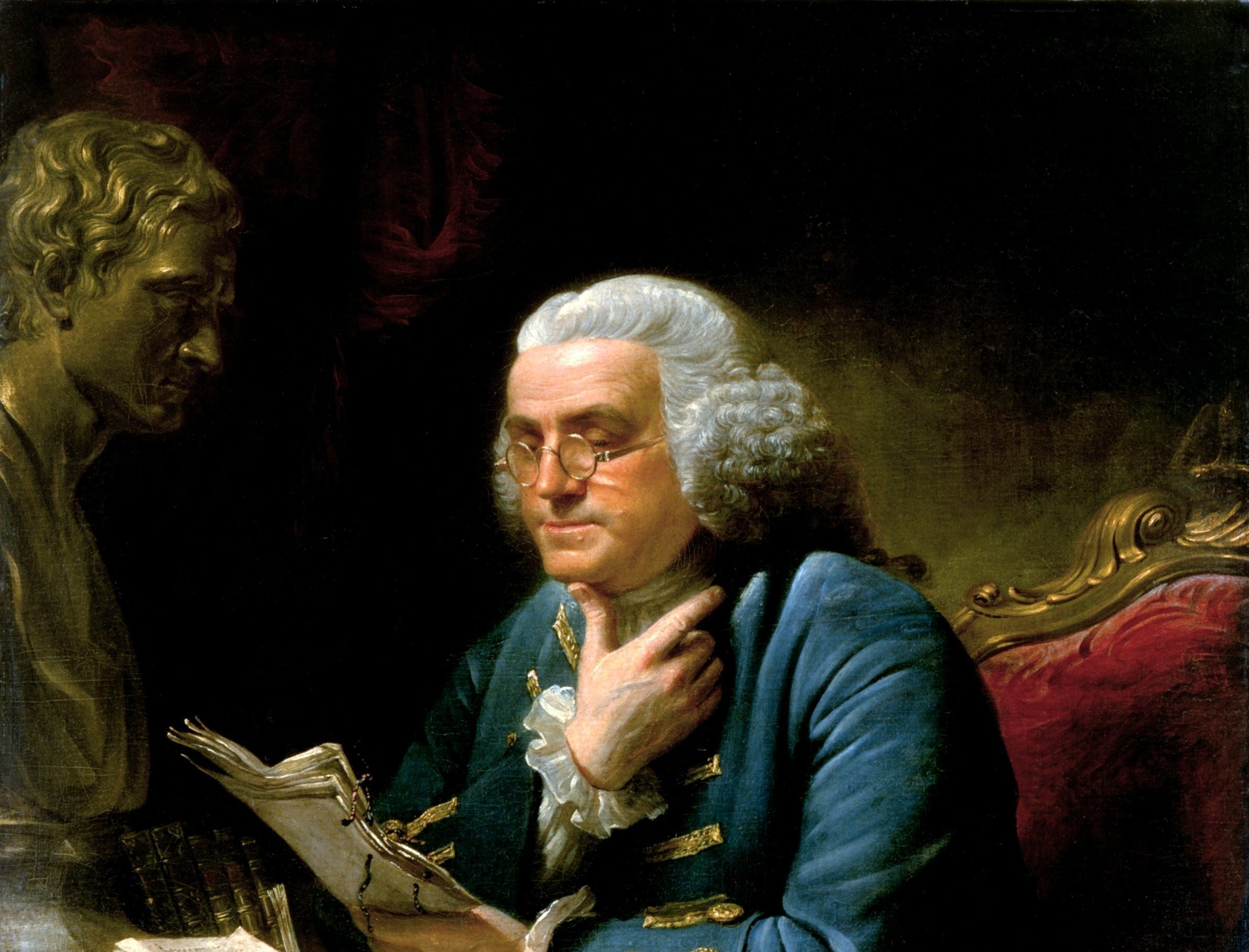In the fall of the year 1780, when the American cause wore a very gloomy aspect in the Southern States, Cols. Arthur and William Campbell, hearing of the advance of Colonel Ferguson along the mountains in the State of North Carolina, and that the Whigs were retreating before him, unable to make any effectual resistance, formed a plan to intercept him, and communicated it to the commanding officers of Sullivan and Washington Counties, in the State of North Carolina. They readily agreed to co-operate in any expedition against Col. Ferguson. Col. Arthur Campbell immediately ordered the militia of Washington Co., Virginia, amounting to near four hundred, to make ready to march under command of Col. Wm. Campbell, who was known to be an enterprising and active officer. Cols. Shelby and Sevier raised a party of three hundred, joined him on his march, and moved with forced marches toward Col. Ferguson. At the same time Cols. Williams, Cleveland, Lacey, and Brandon, of the States of North and South Carolina, each conducted a small party toward the same point, amounting to near three hundred. Col. Ferguson had notice of their approach by a deserter that left the army on the Yellow Mountain, and immediately commenced his march for Charlotte, dispatching at the same time different messengers to Lord Cornwallis with information of his danger. These messengers being intercepted on their way, no movement was made to favor his retreat.
These several corps of American volunteers, amounting to near one thousand men, met at Gilbert Town, and the officers unanimously chose Colonel Campbell to the command. About seven hundred choice riflemen mounted their horses for the purpose of following the retreating army. The balance being chiefly footmen, were left to follow on and come up as soon as they could. The pursuit was too rapid to render an escape. practicable. Ferguson, finding that he must inevitably be over-taken, chose his ground, and waited for the attack on King’s Mountain. On the 7th of October, in the afternoon, after a forced march of forty-five miles on that day and the night before; the volunteers came up with him. The forenoon of the day was wet, but they were fortunate enough to come on him undiscovered, and took his pickets, they not having it in their power to give an alarm. They were soon formed in such order as to attack the enemy on all sides. The Washington and Sullivan regiments were formed in the front and on the right flank; the North and South Carolina troops, under Cols. Williams, Sevier, Cleveland, Lacey, and Brandon, on the left. The two armies being in full view, the center of the one nearly opposite the center of the other-the British main guard posted nearly half way down the mountain-the commanding officer gave the word of command to raise the Indian war-whoop and charge. In a moment, King’s Mountain resounded with their shouts, and on the first fire the guard retreated, leaving some of their men to crimson the earth. The British beat to arms, and immediately formed on the top of the mountain, behind a chain of rocks that appeared impregnable, and had their wagons drawn up on their flank across the end of the mountain, by which they made a strong breast-work.
Thus concealed, the American army advanced to the charge. In ten or fifteen minutes the wings came round, and the action became general. The enemy annoyed our troops very much from their advantageous position. Col. Shelby, being previously ordered to reconnoitre their position, observing their situation, and what a destructive fire was kept up from behind those rocks, ordered Robert Campbell, one of the officers of the Virginia Line, to move to the right with a small company to endeavor to dislodge them, and lead them on. nearly to the ground to which he had ordered them, under fire of the enemy’s lines and within forty steps of the same; but discovering that our men were repulsed on the other side of the mountain, he gave orders to advance, and post themselves opposite to the rocks, and near to the enemy, and then returned to assist in bringing up the men in order, who had been charged with the bayonet. These orders were punctually obeyed, and they kept up such a galling fire as to compel Ferguson to order a company of regulars to fact them, with a view to cover his men that were posted behind the rocks. At this time, a considerable fire was drawn to this side of the mountain by the repulse of those on the other, and the Loyalists not being permitted to leave their posts. This scene was not of long duration, for it was the brave Virginia volunteers, and those under Col. Shelby, on their attempting rapidly to ascend the mountain, that were charged with the bayonet. They obstinately stood until some of them were thrust through the body, and having nothing but their rifle, by which to defend themselves, they were forced to retreat. They were soon rallied by their gallant commanders, Campbell, Shelby and other brave officers, and by a constant and well-directed fire of their rifles, drove them back in id-lei I turn, strewing the face of the mountain with their assailant: and kept advancing until they drove them from some of their posts.
Ferguson being heavily pressed on all sides, ordered Capt. DePeyster to reinforce some of the extreme posts with a full company of British regulars. He marched, but to his astonishment when he arrived at the place of destination, he had almost no men, being exposed in that short distance to the constant fire of their rifles. He then ordered his cavalry to mount, but to no purpose. As quick as they were mounted, they were taken down by some bold marksmen. Being driven to desperation by such a scene of misfortune, Col. Ferguson endeavored to make his escape, and, with two Colonels of the Loyalists, mounted his horse, and charged on that part of the line which was defended by the party who had been ordered round the mountain by Col. Shelby, it appearing too weak to resist them. But as soon as he got to the line he fell, and the other two officers, attempting to retreat, soon shared the same fate. It was about this time that Col. Campbell advanced in front of his men, and climbed over a steep rock close by the enemy’s lines, to get a view of their situation, and saw they were retreating from behind the rocks that were near to him. As soon as Capt. DePeyster observed that Col. Ferguson was killed, he raised a flag and called for quarters. It was soon taken out of his hand by one of the officers on horseback, and raised so high that it could be seen by our line, and the firing immediately ceased. The Loyalists, at the time of their surrender, were driven into a crowd, and being closely surrounded, they could not have made any further resistance.
In this sharp action, one hundred and fifty of Col. Ferguson’s party were killed, and something over that number were wounded. Eight hundred and ten, of whom one hundred were British regulars, surrendered themselves prisoners, and one thousand five hundred stand of arms were taken. The loss of the American army on this occasion amounted to thirty killed, and something over fifty wounded, among whom were a number of brave officers. Col. Williams, who has been so much lamented, was shot through the body, near the close of the action, in making an attempt to charge upon Ferguson. He lived long enough to hear of the surrender of the British army. He then said, “I die contented, since we have gained the victory,” and expired.
The third night after the action, the officers of the Carolinas complained to Col. Campbell, that there were among he prisoners a number who had, previous to the action on King’s Mountain, committed cool and deliberate murder, and other enormities alike atrocious, and requested him to order a court-martial to examine into the matter. They stated that if they should escape, they were exasperated, and they feared they would commit other enormities worse than they had formerly done. Col. Campbell complied, and ordered a court-martial immediately to sit, composed of the Field Officers and Captains, who were ordered to inquire into the complaints which had been made. The court was conducted orderly, and witnesses were called and examined in each case. The consequence was that there were thirty-two condemned. Out of these, nine who were thought the most dangerous, and who had committed the most atrocious crimes, were executed. The others were pardoned by the commanding officer. One of the crimes proven against a Captain that was executed was, that he had called at the house of a Whig, and inquired if he was at home, and being informed by his son, a small boy, that he was not, he immediately drew out his pistol and shot him. The officers on the occasion acted from an honorable motive to do the greatest good in their power for the public service, and to check those enormities so frequently committed in the States of North and South Carolina at that time, their distress being almost unequaled in the annals of the American Revolution.




